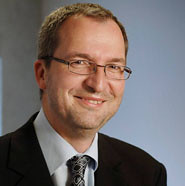 Presentation Title
Presentation Title
the potential of broadband in regional areas
Biography
Torben Rune received his Masters degree in computer technology and communications from the Technical University of Denmark, Copenhagen in 1983. In 1989 he formed his own company, and has since that worked as an independent consultant in the field of tele- and data communications and managing director of Netplan A/S. Torben Rune is a well known in the Danish telecommunications sector for his broad and detailed technical insight and internationally through his work for ETSI and articles for the European Telecommunications Organization (ETO). He is currently working with a number of larger procurement and implementation projects, among those several projects for the Danish National Procurement Office concerning highvolume contracts on telecommunications and telephony.
Notes on presentation:
- “Real” Broadband is not properly understood – people think it is for entertainment and not part of infrastructure.
- Fibreoptics should be seen as part of infrastructure comparable to eg railways hundreds of years ago.
- Map of Denmark shows it is not well supplied by Broadband and especially not in rural areas.
- Not only needed for things such as HD TV. Can also be used eg
- By Health Service to provide on-screen connection to hospital hundreds of miles away, which can diagnose using patient data.
- As translation service (piloted by MedCom DK), using network to translate – 75,000 people require this service nationally and even more in private hospitals.
- For distance learning.
But Broadband networks are not prioritised by local government – why?
- Thought to be too technical and complicated (not true Рhas been around for 30 years)
- Because EU wants a free market (not true Рthis is an infrastructure market)
- Perceived as just a TV network (not true Рonly one of 1,000s of services)
- Not part of an essential infrastructure (not true Рas essential as roads, utilities, water)
- Network neutrality is essential Рall internet traffic should be treated equally. Should be no restrictions on how you communicate and with whom. Infrastructures need to be separate from service provisions.
- To conclude, if there is no investment in digital infrastructure, it will become increasingly hard to live in rural areas.









